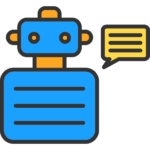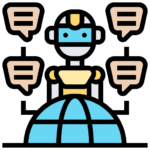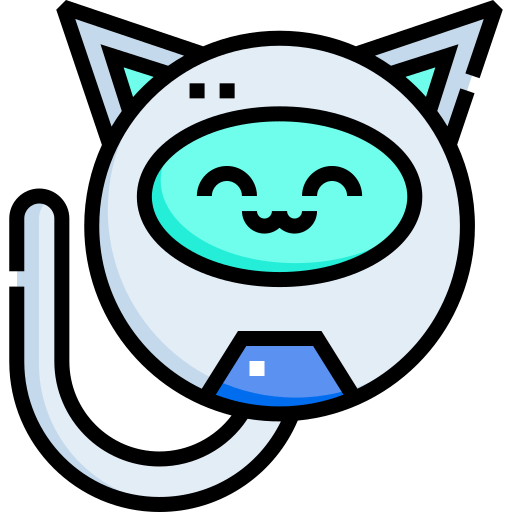
The decision to pay for an AI-driven chatbot for your website depends on several factors. Here are some points to consider in detail to help you make an informed decision:
- Customer Interaction Enhancement: An AI-driven chatbot can improve customer experience on your website by providing instant responses to common queries, addressing customer concerns, and offering personalized assistance. Consider if your website receives a significant amount of traffic or if you have a high volume of customer inquiries that could benefit from automation.
- 24/7 Availability: Unlike human agents, an AI chatbot can be available 24/7, providing continuous support to your website visitors and customers. If your business operates globally or caters to customers in different time zones, a chatbot could be a valuable asset in maintaining round-the-clock support.
- Cost Savings: Implementing an AI chatbot can be cost-effective in the long run. While there will be initial setup and development costs, you can save on hiring and training human agents to handle repetitive and routine queries.
- Scalability: As your business grows, the number of customer queries is likely to increase. An AI chatbot can easily scale to handle higher volumes of inquiries without significant additional costs.
- Customization and Personalization: Consider the level of customization and personalization the AI chatbot can offer. A well-designed chatbot can learn from user interactions and provide more relevant responses over time, enhancing the user experience.
- Integration with Existing Systems: Ensure that the AI chatbot can integrate with your existing systems, such as customer relationship management (CRM) tools, help desk software, or e-commerce platforms. Seamless integration can streamline workflows and improve data management.
- Security and Privacy: Since chatbots interact with users, it’s crucial to prioritize security and data privacy. Make sure the chatbot complies with data protection regulations and follows best practices for data handling.
- Natural Language Processing (NLP) Capabilities: Advanced NLP capabilities enable chatbots to understand user intent better and provide more accurate responses. Consider the level of NLP sophistication the chatbot offers.
- Human Handover Feature: In cases where the chatbot cannot adequately address complex queries, a human handover feature is valuable. This allows the chatbot to escalate the conversation to a human agent seamlessly.
- User Analytics and Insights: Look for a chatbot solution that provides analytics and insights into user interactions. Understanding user behavior can help you optimize the chatbot’s performance and identify areas for improvement.
- Vendor Reputation and Support: Research the reputation of the AI chatbot provider. Read reviews and testimonials to gauge customer satisfaction. Additionally, assess the level of support the vendor offers during implementation and post-implementation stages.
- Trial and Testing: If possible, try out a demo or trial version of the chatbot before committing to a purchase. This will allow you to evaluate its performance, user-friendliness, and compatibility with your website.
An AI-driven chatbot can be a valuable addition to your website, but it’s essential to assess your specific needs, budget, and long-term goals before making a decision. If implemented effectively, a well-designed chatbot can enhance customer satisfaction, streamline support processes, and positively impact your business’s bottom line.
Pros and cons of using an AI driven chatbot for my website

Using an AI-driven chatbot for your website can offer several benefits, but it also comes with some drawbacks. Here are the pros and cons to consider:
Pros and Upsides:
- 24/7 Availability: An AI chatbot can provide instant responses and support to website visitors round the clock, improving customer experience and satisfaction.
- Cost Savings: Implementing a chatbot can be cost-effective compared to hiring and training human agents to handle customer queries.
- Scalability: AI chatbots can handle a large number of inquiries simultaneously, making them suitable for businesses with high website traffic and customer interactions.
- Efficiency: Chatbots can handle routine and repetitive tasks quickly, freeing up human agents to focus on more complex issues.
- Consistency: AI chatbots provide consistent responses, ensuring that customers receive the same level of service regardless of the time of day.
- Instant Responses: Customers get immediate answers to their queries, reducing waiting times and improving user satisfaction.
- Data Collection and Analysis: Chatbots can collect valuable user data and interactions, providing insights that can be used to enhance products, services, and customer support.
- Language Support: AI chatbots can be designed to handle multiple languages, making them suitable for businesses with a global customer base.
- Learning and Improvement: Modern AI chatbots can learn from user interactions, allowing them to provide more accurate and relevant responses over time.
Cons and Downsides:
- Limited Complexity: AI chatbots may struggle to handle complex or highly specific queries, leading to frustration for users seeking in-depth assistance.
- Lack of Empathy: Chatbots lack human emotions and empathy, making them less adept at handling sensitive or emotionally charged customer interactions.
- Initial Setup and Integration: Implementing an AI chatbot requires time, effort, and sometimes financial investment for development and integration with existing systems.
- Data Privacy Concerns: Collecting and storing user data raises privacy concerns. Ensuring compliance with data protection regulations is crucial.
- Dependency on Technology: Chatbot performance relies on internet connectivity and the underlying AI technology. Technical issues can disrupt chatbot functionality.
- Narrow Domain Knowledge: AI chatbots are only as good as the data they are trained on. They may struggle with queries outside their trained domain.
- User Frustration: If the chatbot misunderstands user intent or provides incorrect responses, it can lead to user frustration and a negative perception of your brand.
- Human Handover Complexity: Implementing a seamless handover from the chatbot to a human agent for complex queries can be challenging.
In conclusion, an AI-driven chatbot can be a valuable tool for enhancing customer support and user experience on your website. However, it’s essential to carefully consider your specific business needs, the capabilities of the chatbot, and the potential challenges to ensure a successful implementation. A well-designed chatbot can improve efficiency, customer satisfaction, and overall business performance.






